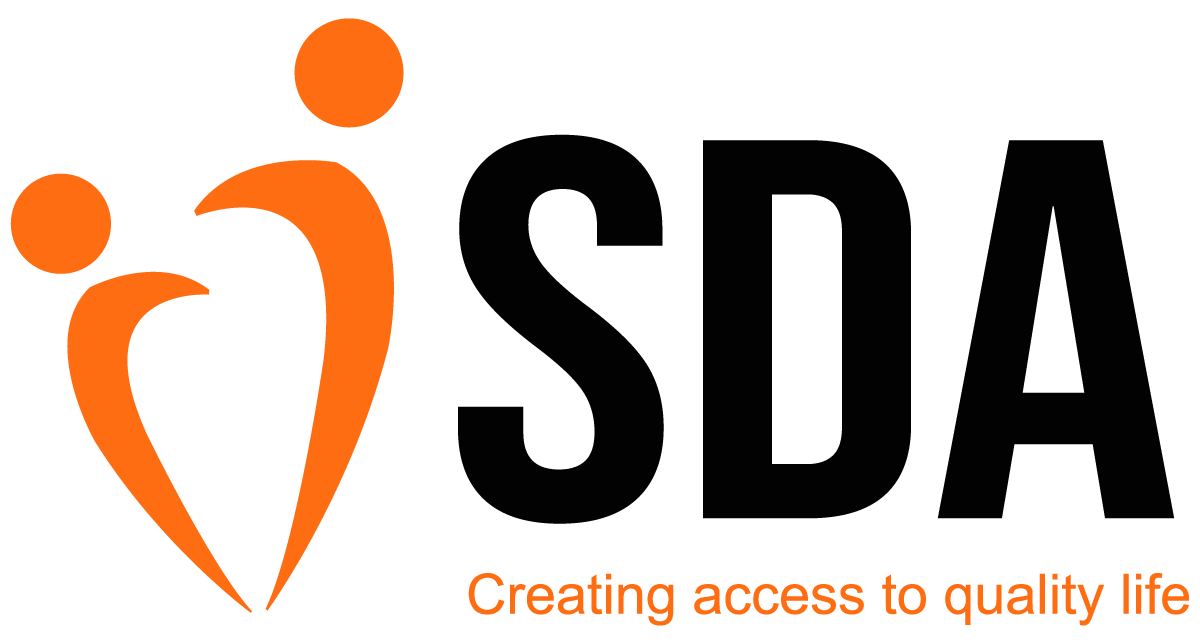FAO-Spanish Food Facility Project
Food and Agriculture Organization (FAO) of United Nations has initiated FAO-Spanish Food Facility Project (OSRO/BGD/001/SPA) financial supported by the government of Spain. for “Immediate Assistance to Restore the Livelihoods of Women and Fish Farmers Severely Affected by Cyclones in South Western Bangladesh” to support the severely SIDR and AILA affected landless, marginal and small farmers to enhance food security for promote the life and livelihoods of the marginal farmers of coastal area. The Project has been implemented by FAO in the close collaboration with the Department of Livestock Services (DLS) and Department of Fisheries (DOF) under the ministry of Fisheries and Livestock and field level operationalised by the respective partner NGO. SDA is the designated implementing NGO partner of this Project in Kalapara Upazila under Patuakhali district.
FFS Group members have been selected by strictly maintaining the criteria of project guideline as the project beneficiary. The landless, poor, marginal and small farmers those are directly engaged with Fishing and poultry and affected by the SIDR and AILA are the preconditions of beneficiary selection. At the beginning of the project a series of formal and informal meeting and sharing session has been organized with the different stakeholders in the district, Upazila and Union level. DC, ADC, Upazila Chairman, vice chairman, local UNO, DLS, DOF, UP chairman, member and civil society representatives were the target audience in this regard.
Inputs distribution is the most important provision of this project. To get benefit from the project inputs have been distributed among the beneficiaries. The project has distributed various inputs among the beneficiary HHs such as: Lime, fertilizer, fingerlings, poultry along with poultry foods and sheds, fish foods and aquaculture inputs among the group members. According to the LOA, SDA has distributed the inputs as per ensuring the quality and quantity among the beneficiaries timely. Beneficiaries are very happy by receiving these types of inputs in reality. It was their beyond imaginary issue. The entire beneficiary HHs has (1400) been directly benefited by the inputs. It is noted that all inputs have been supplied by the centrally hired vendor by FAO authority. So, the quality of supplied inputs is same as other parts of the project location relatively. Beneficiaries have been engaged to the income generating activities to increase their income level which helps them to reduce their poverty level resulting to improve their food security and nutritional status. Inputs distribution creates the light of hopes in the area.
Capacity building is one of the most attractive elements of this project. Repeated disasters damaged the assets and means of livelihood of thousands of poor families of the area and left them in a very hardship and measurable conditions. One of the major causes and key points of poverty is the lack of knowledge, information and the lack of links with the different service providers. Considering the facts this project intervened the profession based knowledge transfer and skill development of farmers by providing training on different trades by assessing the needs of the community. Basic knowledge on improved poultry raring methods is very much essential and helpful. In this regard knowledge gathering and capacity building of beneficiaries are essential. Training has been provided for their capacity building on backyard poultry rearing and bio-security issues. Training will help them to follow the improved practices on feeds and feeding, methods of replicating their flock, as well as refresh their learning on bio-security issues and avian common diseases. This will help them to develop skills and confidence of achieving the overall objectives. ULO and UFO have provided issue based training and technical support to the beneficiaries.
Different departments of GOB such as, DAE, DLS and DOF etc have been providing a lot of agriculture based services. But due to the lack of proper information and knowledge the service seekers / beneficiaries are not getting appropriate services from those departments. Hopefully by the community mobilization and training of beneficiaries’ direct interaction has been promoted among the beneficiaries and those departments. As a result the situation has been changed positively and the people became more aware. The service seekers feel interest for need based communication with the respective service providers according to their requirements in the area.
The poverty and the nutritional status are in alarming situation. In this context of vulnerability of their livelihoods they have been supported with the poultry and aquaculture package from this project. It creates some hope and aspirations to them. However, the poor families are yet to get benefit from this support. Improvement of lives and livelihoods was the specific target of the project. The project adopted a good number of initiatives for the future sustainability. Trade based Input support, provide technical knowledge and capacity development is the key factor of sustainability. The best utilization of land and other resources considering the time, labor and cost, capacity building for institutional sustainability, strengthening the unity of farmers, removal of communication gaps in between the service providers and service seekers will help to enhance the Income generation of farmers and that was the target of the project.
To get the maturity of any project or program it needs more time. Sustainability will depend of this project on the role playing of the government concern departments; i.e. DLS and DOF. They will have to play the cooperative roles over the years. At the same time the beneficiaries will have to remain the touch of respective departments. If both parties play their respective roles and responsibilities proper and reciprocally; then a good result will come in the near future.
